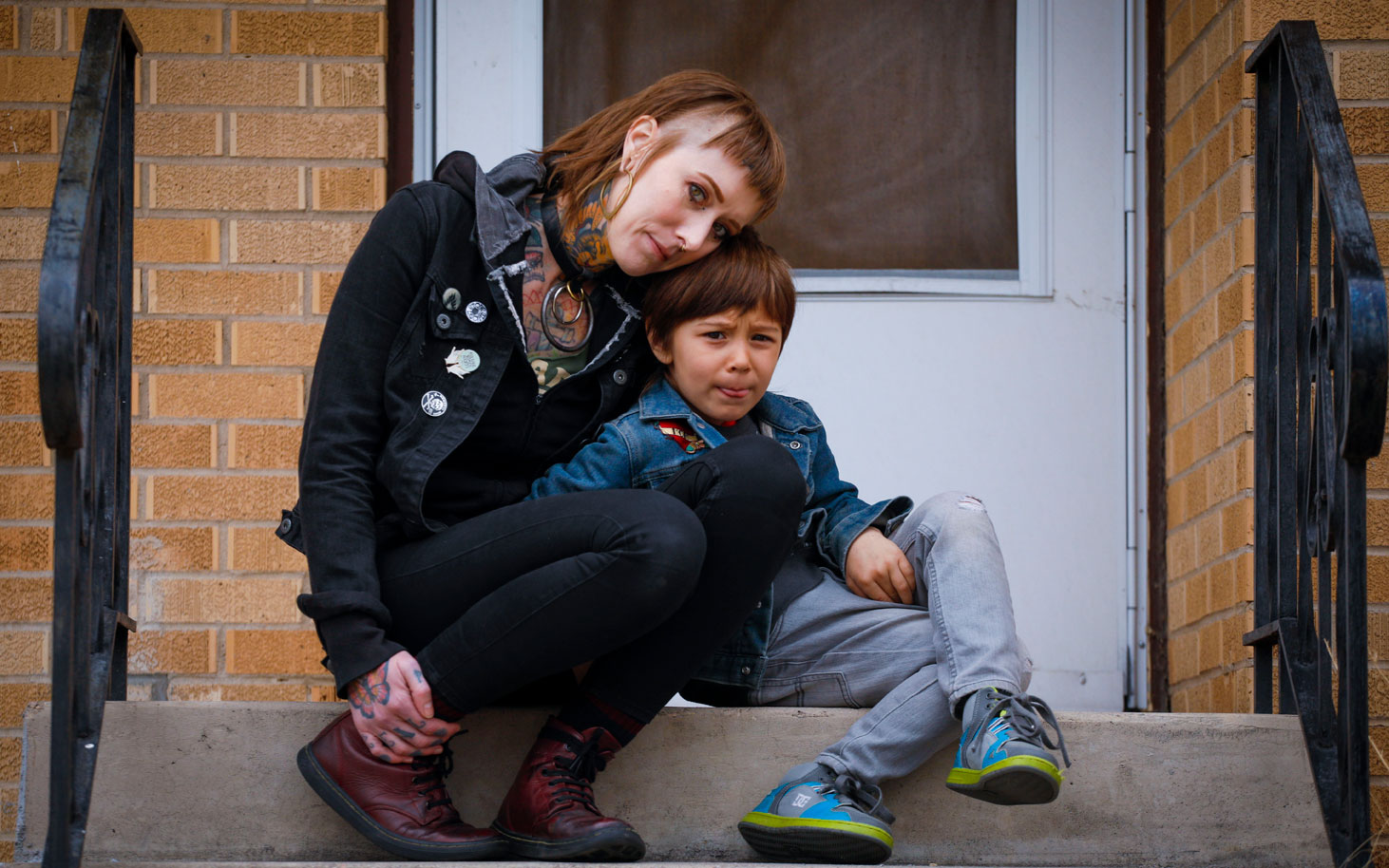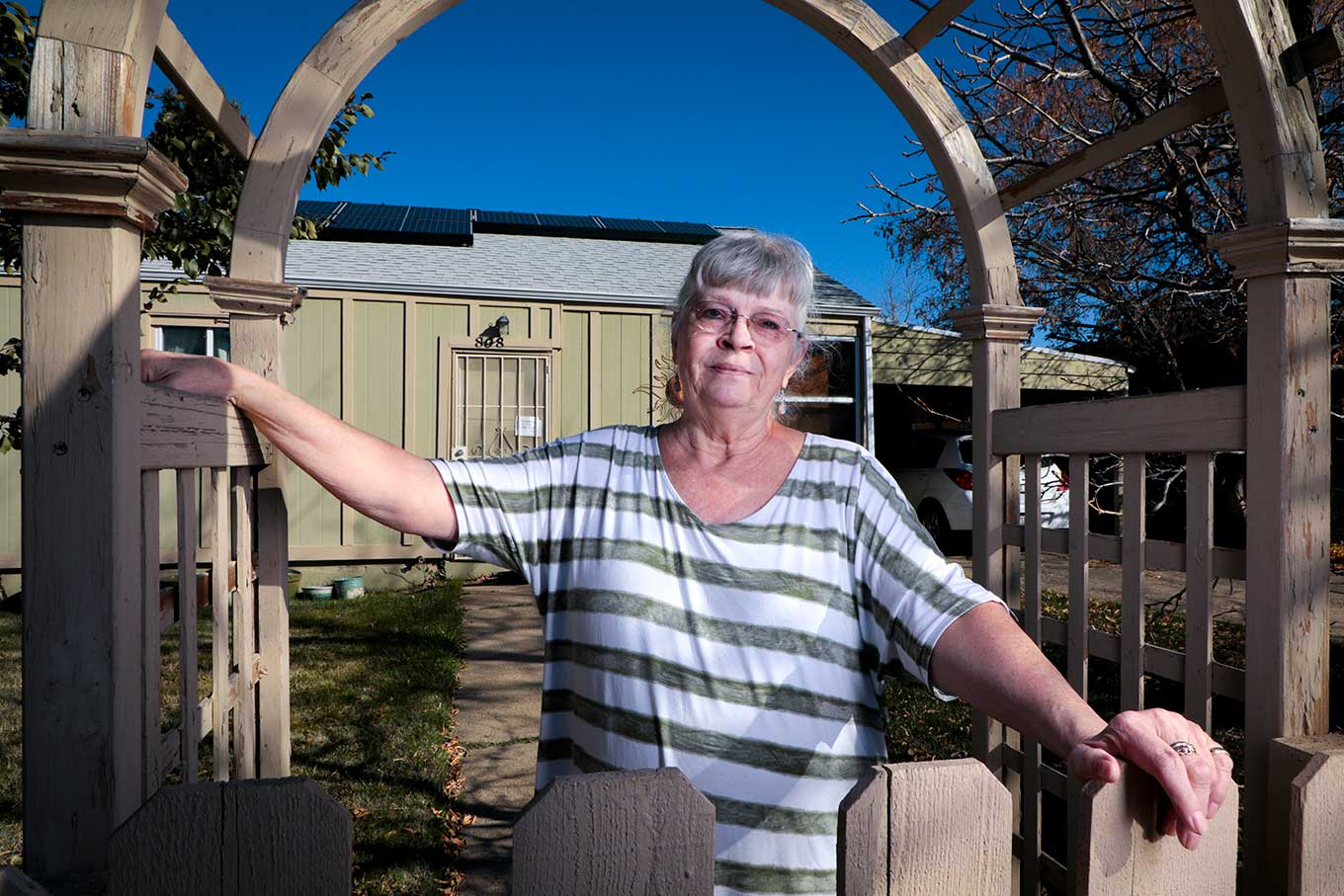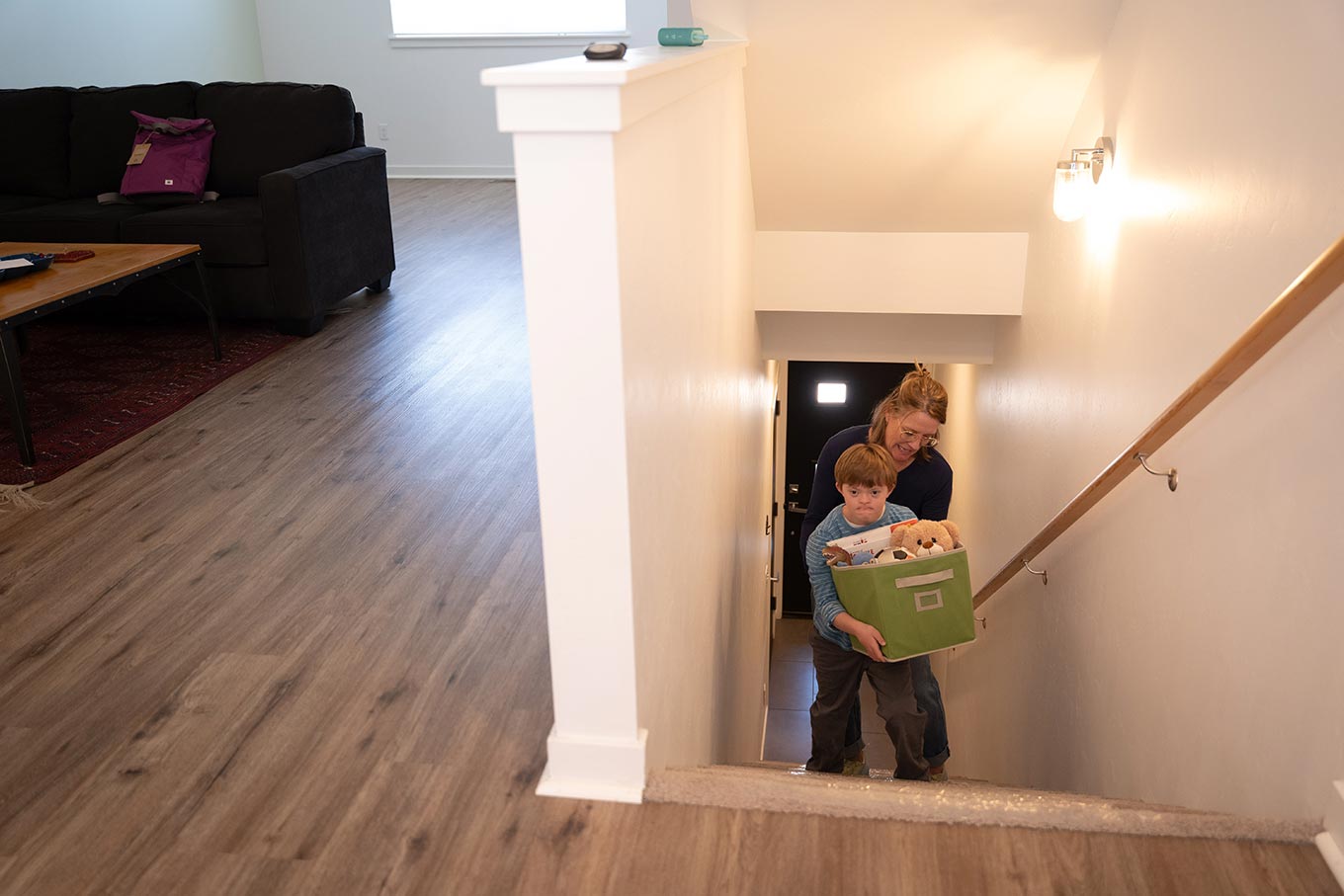By Michael Booth
It’s a long list of indignities that brought Lane Hicks and her 6-year-old son to the brink of eviction, so she tries to give them in order:
Before COVID-19 turned Colorado and the world upside down, Hicks was being paid cash under the table at a Colorado Springs marijuana dispensary so that her boss could avoid the paperwork.
In mid-March, she took her son to a birthday party with about 40 guests. She checked the Centers for Disease Control and Prevention (CDC) website before attending; at the time, the CDC was okay with any gatherings of less than 50 people.
Two days later, the party host told the guests she might have been previously exposed to the coronavirus. Hicks told her boss, respecting the fact he is immunocompromised. He fired her.
Hicks can’t file for unemployment because she’d been paid in cash. She can’t look for or take a job because her son is home, locked out of school. Her partner has no remodeling work because no one wants strangers in their house. She has less than a month’s rent in the bank.
When Hicks asked the landlord for a break on April rent, with six months left on the lease, the landlord’s husband called back and screamed expletives at her. Even if she’s protected by a one-month eviction moratorium, that doesn’t relieve Hicks of back rent and $6,000 left on the lease, or any court fees and damages the landlord can legally seek.
“I literally can’t pay my rent,” Hicks said. “I went from three weeks ago paying off my car in cash, buying a new car in cash, to having no savings and no income and I’m eating from food banks.
“I have so many friends who are in this situation, and honestly with literally millions of people losing their homes, the only way I see out of this is if they put a freeze on rent. I don’t know how any of us can recover from this.”
The COVID-19 lockdown is revealing sharp inequities previously disguised by Colorado’s robust economy and recent record-low unemployment rate. If nearly 40% of Americans couldn’t cover a $400 emergency expense, as a Federal Reserve study showed, what will happen when hundreds of thousands of Coloradans lose jobs within a month and can’t pay rent?
“Right now, people are tapping into other resources, like food banks and the free internet offers,” said Elsa Oliva Rocha, executive director of Padres & Jóvenes Unidos, a nonprofit that advocates on various issues for and by people of color. (The organization is a grantee of The Colorado Trust.) “But there’s not a lot of resources to pay rent, or pay for cars, or insurance—basic things that a lot of us take for granted. A lot of our community members are living check to check, that’s just the reality of the community.”
With a large number of people remaining undocumented, Oliva Rocha added, access is cut off to unemployment wages, housing assistance, stimulus checks, Medicaid and Supplemental Nutrition Assistance Program benefits, and more.
Massive layoffs and lack of savings for Colorado low-income workers make it clear, say renters and legal advocates, that state authorities need to extend local moratoriums on evictions through the summer, and also forgive or “freeze” rent payments. The alternative is mass eviction notices, court battles, homelessness and further economic decline.
“There needs to be a broader response to the issue,” said Denver lawyer Zach Neumann, who runs a free legal clinic and helped organize a group of nonprofits into the COVID-19 Eviction Defense Project. “You don’t want the entire community waking up in May or early June with a substantial portion of the Denver population facing forcible entry and detainer.”
Judging from his phone calls and state unemployment statistics, Neumann believes 20-30% of the city population is vulnerable to this new rent disaster.
Asked for comment on potential eviction moratoriums in Colorado or other means of addressing this issue, no one from the state’s Joint Information Center or Gov. Jared Polis’s office had responded by publication time.
Many renters are not waiting for forgiveness. Activists have organized a Colorado Rent Strike and Eviction Defense page on Facebook that quickly drew more than 3,000 members and a scrolling list of recent tragedies. Some members believe collective action is their best hope for convincing the governor to declare rent forgiveness—which legal experts are not even sure he can do—and force landlords to make concessions as a group.
Schuyler Trowbridge joined the rent strike group as he began his own battle with a landlord near the University of Colorado campus in Boulder. At the beginning of March, Trowbridge was working at a call center to help underwrite his undergraduate classes. He thought he’d come in contact with a positive COVID-19 case, so he asked the call center if he could work from home. Though the technology for doing so seemed easy—it’s a call center—they fired him instead, said Trowbridge.
The cash Trowbridge has in the bank is actually from a student loan. He’s been borrowing to pay for college, even after waiting until age 26 so he’d get more financial aid as an independent adult. He pays $650 a month for the smallest of three bedrooms in a house that rents for $1,950 per month. Dozens of his friends have lost jobs in service industries; “the only one with a safe job is running the grocery pickup service at a King Soopers,” Trowbridge said.
His roommates weren’t interested in renegotiating his share of the rent. The first time he asked his landlord for relief, it was a flat “pay or face eviction.”
“So I just said I’m not paying,” Trowbridge said. “A rent strike can have an impact, 100 percent. The main leverage is that they have frozen evictions. [Boulder’s judicial district has suspended all non-emergency actions until after May 31.] The longer we hold our money, the more evictions pile up. They literally cannot evict us all.” Nor will a payment delay work, he added. “We need forgiveness. We need renegotiation.”
The landlord is now negotiating, Trowbridge said, likely because he threatened a habitability complaint for failure to fix a dryer. Trowbridge said he does not resent the lockdown, and that the real battles around COVID-19 are not generational as some media have focused on. “It’s class warfare over age warfare,” he said. “It’s haves versus have-nots.”
The Colorado Apartment Association, which represents landlords of more than 400,000 units in Colorado, has a task force that encouraged property owners to hold off evictions, waive late fees and work individually with hard-hit tenants on a plan for payment. It also says, though, that many of Colorado’s landlords are “mom-and-pop shops” with only a house or a few units, and that they themselves have monthly mortgages to pay that banks are so far not forgiving.
“It’s a terrible situation, it’s unprecedented,” acknowledged Michelle Lyng, who contracts as spokesperson for the Colorado Apartment Association and also rents out a small property she owns. “In previous recessions, things gradually slowed down. This is like we all fell off a cliff.”
Many landlords are hearing about the idea of a rent strike, Lyng said, but even larger property owners need the cash flow of rent payments to fund property managers, cleaning efforts that are more important than ever during the pandemic, and landscape and other employees.
“People think that when you pay rent you’re just lining someone’s pockets, and that’s just not the case,” Lyng said. “It’s really important for people who can pay, to pay. Every building is in a different financial situation—everyone on both sides of this is trying to do the best they can.”
A pilot program in 2018 by Colorado Legal Services, using funds pooled by Denver City Council members, assisted 398 clients facing eviction over eight months. A temporary office set up in Denver’s City & County Building offered legal counsel to people facing eviction hearings. According to Colorado Legal Services attorney Jana Happel, 34% were African American, triple their proportion of Denver’s overall population. Thirty-five percent of clients had disabilities.
A Center for American Progress study of homeownership—a key source of individual and generational wealth—showed 73% of white households own their home, while the ratio drops to 41% for African Americans, and is similarly low for Latinx families.
Job insecurity from COVID-19 also hits unequally, with higher-paid white-collar jobs faring much better so far. An Axios-Ipsos poll of 1,355 U.S. adults conducted in late March found that 65% of upper-income workers reported being able to continue working normally or work from home. Among the lowest-income respondents, only 29% said they could work normally or from home.
Colorado had made progress in recent years giving tenants more rights, including extending the period for late rent payments and toughening habitability rules for landlords. But the extraordinary COVID-19 situation calls for much more, said Jack Regenbogen, senior attorney with the nonprofit Colorado Center on Law & Policy (a Colorado Trust grantee).
“To protect renters in the short term, our government needs to immediately implement a statewide eviction moratorium,” he said. “In the long run, there will need to be considerable financial assistance provided to help people rebound from the loss of wages and remain housed.”
Legal advocates have warned the rent strike supporters, though, that outright rent forgiveness will be tough to sell to state leaders as an executive order or piece of emergency legislation. It essentially requires the state to tear up existing, legally binding rental contracts and overwrite centuries of contract law, they said.
Neumann understands the difficulty of that position, even as an advocate for lower-income families. What he keeps collecting, though, are crushing stories from tenants suddenly in trouble.
One of his pro bono clients is a pregnant woman due in April, whose husband lost his job and then contracted COVID-19. Despite living in a county with a temporary eviction moratorium, the landlord told them if they can’t pay, they have to leave immediately. The couple has a 2-year-old.
“That captures the pain of this moment pretty well,” Neumann said.
Nonprofit and government agencies say they are only beginning to understand how much Colorado’s renter crisis will reach into households previously thought to be safely middle class.
John Bonaccorso and his fiancee saw themselves in that group until last month. Bonaccorso is a tech entrepreneur who says he spent his life savings to move to Denver and launch a new company. Income from that ended four weeks ago. At the same time, his fiancee lost her job as a restaurant server.
Bonaccorso had been driving for Uber and Lyft while he tried to build his startup. On Tuesday, March 31, he had his driving apps on for six hours. He got one ride for $3.
Bonaccorso’s monthly rent is $2,400, and his landlord said the best he could do is hold off eviction until April 30. His fiancee’s unemployment check won’t start for two or three weeks. They may get one stimulus check: $1,200, to dissolve into rent, utilities, car payments and food.
Bonaccorso said he may be luckier than some, but still imagines his situation multiplying across the city and state in coming weeks.
“These thousands of imminent evictions need to be pushed to the front of the public attention immediately before people become desperate, and who knows what can happen,” he said.




